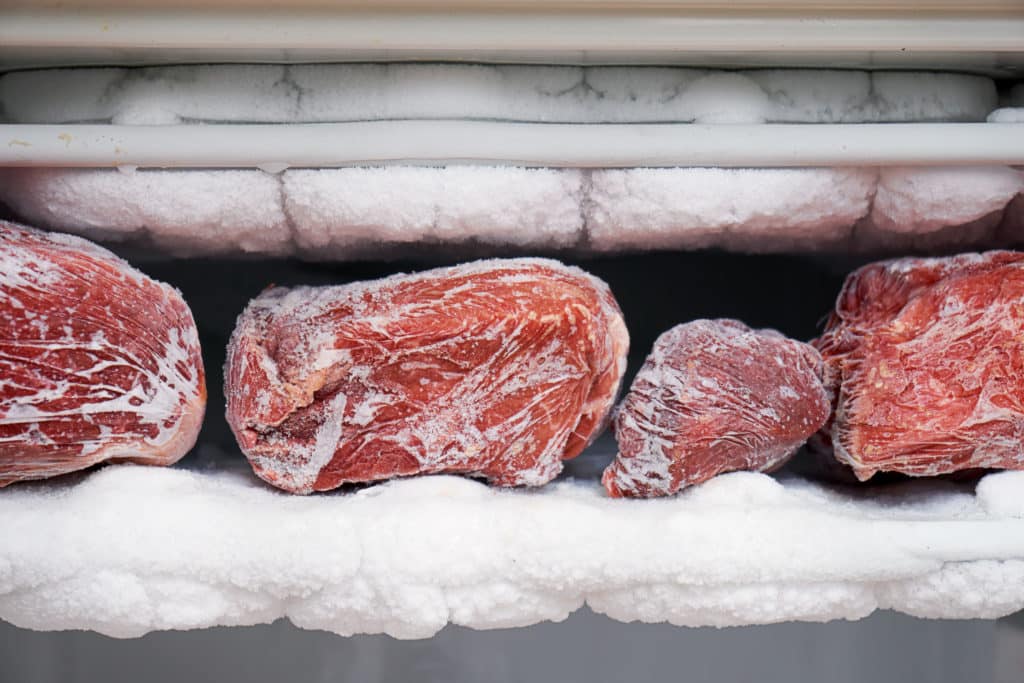Bloomberg Businessweek published an article last week about the luscious Wagyu beef aged in a storehouse covered with snow in the NiigataPrefecture. This meat commands a price tag of as much as $300 per pound in the U.S. Is this snow-aged Wagyu worth the money or is it just a hype?
The aging method of this beef is definitely unique and provides a more consistent aging environment. While the temperature in a refrigerator can fluctuate between -1°C – 10°C, and the humidity 30% – 99% due to the thermostat turning on and off, the temperature and humidity in the snow-covered storage is consistently 1°C – 2°C and above 90%. These dependable conditions make the aging process more predictable.
On the other hand, the beef used for aging may not be on par with that of other branded Wagyu. The producer owns three registered trademarks: Snow Aging Niigata Wagyu, Snow Aging Wagyu, and Snow-Aged Beef. Readers of our website know that only cattle that come from one or a mix of the four Wagyu breeds can be called Japanese Wagyu, and among this already selected group, only those that meet the strict criteria of a brand can be branded Wagyu. For example, the brand of Niigata Wagyu requires the meat to come from black-haired heifers or steers which a grade of at least A3, B3 or above. Therefore, among the three trademarks, the Snow Aging Niigata Wagyu will likely be the best in quality.
However, the beef exported from this producer is either Snow Aging Wagyu or Snow Aging Beef, which means you are getting either unbranded Wagyu or not Wagyu at all. Snow Aging Wagyu, which is exported to the US, Singapore,[1] and Vietnam, is still Wagyu, but not of any specific brand. The pedigree of the bloodline and the amount of care that went into raising the cattle tend to pale in comparison to branded Wagyu. Snow Aging Beef is of even a lesser quality as the cattle can be F1’s (Wagyu mixed with another breed) or non-Wagyu beef the producer imports from another country. If you are eating the snow-aged beef in Hong Kong or Thailand, Snow Aging Beef (not necessarily Wagyu) is what you will get.
For these reasons, the snow-aged Wagyu/beef is probably overrated. The aging method generally cannot compensate for the pedigree and the care in the rearing process. This of course does not preclude the possibility that some snow-aged Wagyu/beef could taste amazing, but if you want to know where your Wagyu came from and how it was raised, the only way to be sure is to check the traceability number.
[1] You may get either Snow Aging Wagyu or Snow Aging Beef in Singapore.

